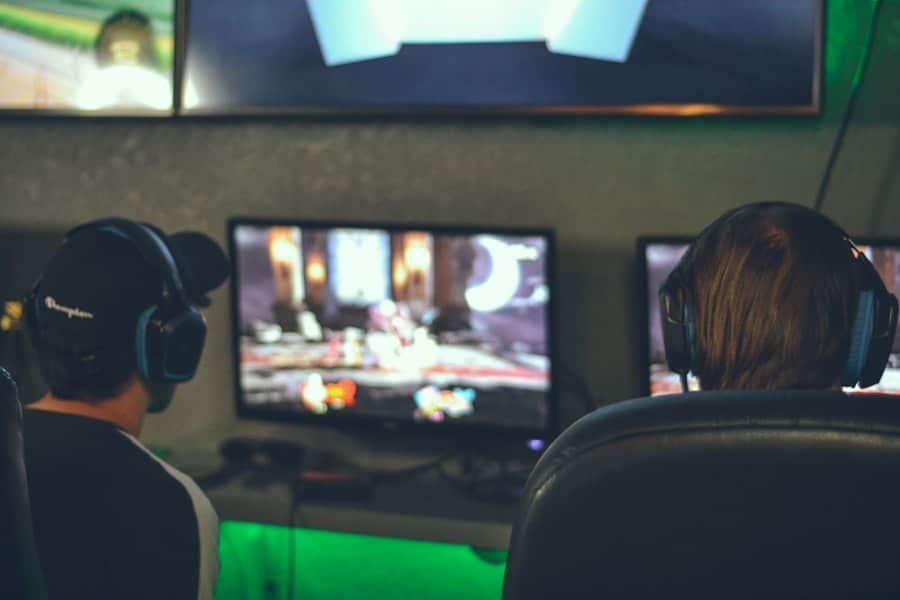The landscape of multiplayer gaming has evolved dramatically over the past two decades, transforming from a niche hobby into a global phenomenon that attracts millions of players from diverse backgrounds. However, with this growth comes a significant challenge: the prevalence of harassment within these virtual environments. Harassment can manifest in various forms, including verbal abuse, bullying, and discriminatory remarks, which can create a toxic atmosphere that detracts from the gaming experience.
Addressing this issue is not merely a matter of maintaining decorum; it is essential for fostering an inclusive community where all players feel safe and valued. The impact of harassment extends beyond individual players; it can affect the overall health of gaming communities. When players encounter hostility, they may choose to disengage from the game entirely, leading to a decline in player retention and community vibrancy.
By prioritizing the eradication of harassment, game developers and community leaders can cultivate a more welcoming environment that encourages participation and collaboration, ultimately enhancing the gaming experience for everyone involved.
Key Takeaways
- Addressing harassment in multiplayer games is crucial for creating a safe and inclusive gaming environment.
- Moderation strategies such as clear rules, active monitoring, and swift enforcement can help reduce harassment in multiplayer games.
- Implementing reporting and blocking features empowers players to take control of their gaming experience and report abusive behavior.
- Community moderators play a vital role in enforcing rules, mediating conflicts, and fostering a positive gaming community.
- AI and machine learning can be used to detect and address harassment in real-time, enhancing the effectiveness of moderation efforts.
Strategies for Moderating Harassment in Multiplayer Games
To effectively combat harassment in multiplayer games, developers must implement comprehensive moderation strategies that encompass both proactive and reactive measures. Proactive strategies include establishing clear community guidelines that outline acceptable behavior and the consequences for violations. These guidelines should be easily accessible and communicated to players upon joining the game.
By setting clear expectations, developers can create a framework that discourages harassment before it occurs. In addition to clear guidelines, developers can employ various moderation tools to monitor player interactions. Automated systems can flag inappropriate language or behavior in real-time, allowing moderators to intervene swiftly.
Furthermore, fostering a culture of accountability among players can be instrumental in reducing harassment. Encouraging players to support one another and report misconduct can create a sense of collective responsibility, where the community actively participates in maintaining a respectful environment. This collaborative approach not only empowers players but also reinforces the notion that harassment will not be tolerated.
Implementing Reporting and Blocking Features

One of the most effective ways to empower players against harassment is through the implementation of robust reporting and blocking features. These tools provide players with the means to take action against abusive behavior without feeling helpless. A well-designed reporting system should allow players to report incidents easily, providing options for categorizing the type of harassment experienced.
This categorization can help moderators prioritize cases based on severity and frequency. Blocking features are equally important, as they enable players to remove toxic individuals from their gaming experience entirely. By allowing players to block others, developers give individuals control over their interactions within the game.
This autonomy is crucial for fostering a sense of safety and comfort, as players can curate their gaming environment according to their preferences. Additionally, developers should ensure that these features are user-friendly and accessible across all platforms, as ease of use can significantly impact their effectiveness.
The Role of Community Moderators in Multiplayer Games
Community moderators play a pivotal role in maintaining a healthy gaming environment by acting as intermediaries between players and developers. These individuals are often passionate gamers themselves who understand the nuances of the community and its culture. Their presence can help bridge the gap between player concerns and developer policies, ensuring that feedback is communicated effectively.
Moderators are tasked with monitoring player interactions, enforcing community guidelines, and addressing reports of harassment. Their responsibilities require a delicate balance between authority and approachability; they must be firm in upholding rules while also being empathetic to players’ experiences. Training moderators to handle sensitive situations with care is essential, as their responses can significantly influence how players perceive the game’s community.
By fostering a positive relationship between moderators and players, developers can create an environment where individuals feel comfortable seeking help and reporting issues.
Using AI and Machine Learning to Detect and Address Harassment
The integration of artificial intelligence (AI) and machine learning into moderation practices represents a significant advancement in addressing harassment in multiplayer games. These technologies can analyze vast amounts of player interactions in real-time, identifying patterns indicative of abusive behavior. For instance, AI algorithms can be trained to recognize specific phrases or language commonly associated with harassment, allowing for immediate intervention.
Moreover, machine learning models can adapt over time, improving their accuracy as they learn from new data. This adaptability is crucial in combating harassment, as language and tactics used by harassers often evolve. By employing AI-driven moderation tools, developers can enhance their ability to detect harassment proactively rather than reactively.
However, it is essential to balance automation with human oversight; while AI can flag potential issues, human moderators should ultimately make decisions regarding consequences to ensure fairness and context are considered.
Creating Safe Spaces for Players in Multiplayer Games

Creating safe spaces within multiplayer games is vital for fostering inclusivity and encouraging diverse participation. Safe spaces are environments where players feel secure expressing themselves without fear of judgment or harassment. Developers can cultivate these spaces by implementing features that promote positive interactions, such as mentorship programs or community events focused on collaboration rather than competition.
Additionally, developers should consider incorporating customizable privacy settings that allow players to control who can interact with them. For example, enabling options for private matches or friend-only lobbies can help players engage with trusted individuals while minimizing exposure to potential harassers. Furthermore, highlighting positive behavior through recognition systems—such as rewarding players for sportsmanship or helpfulness—can reinforce a culture of respect and support within the community.
Collaboration with Mental Health Professionals and Support Resources
The psychological impact of harassment in multiplayer games cannot be overstated; it can lead to anxiety, depression, and a host of other mental health challenges for affected individuals. Recognizing this reality, game developers should collaborate with mental health professionals to create resources that support players facing harassment. This collaboration could involve developing in-game resources that provide information on coping strategies or directing players to external support services.
Moreover, hosting workshops or webinars featuring mental health experts can raise awareness about the effects of harassment and promote healthy gaming habits. By prioritizing mental health alongside community safety, developers demonstrate a commitment to the well-being of their players. This holistic approach not only addresses immediate concerns but also fosters long-term resilience within the gaming community.
The Future of Moderation in Multiplayer Games
As technology continues to advance, the future of moderation in multiplayer games will likely see even more innovative solutions to combat harassment. The integration of virtual reality (VR) and augmented reality (AR) into gaming experiences presents unique challenges and opportunities for moderation practices. In these immersive environments, developers will need to consider how harassment manifests differently compared to traditional gaming formats.
Furthermore, as gaming communities become increasingly globalized, cultural differences will play a significant role in shaping moderation strategies. Developers must be attuned to varying cultural norms regarding communication and behavior to create inclusive environments that respect diverse perspectives. This adaptability will be crucial in ensuring that moderation practices remain effective across different regions and demographics.
By prioritizing these elements, developers can create safer and more inclusive gaming environments that enhance the overall experience for all players involved.
In a related article discussing the importance of content optimization, NeuronWriter SEO NLP Optimization highlights the significance of utilizing advanced tools to enhance the visibility and reach of online content. Just as multiplayer games are addressing harassment through moderation, content creators can also benefit from implementing strategies to improve the quality and effectiveness of their work. By utilizing tools like NeuronWriter, creators can optimize their content for search engines and attract a wider audience.
FAQs
What are multiplayer games?
Multiplayer games are video games that can be played by multiple players at the same time, either locally or online.
What is harassment in multiplayer games?
Harassment in multiplayer games refers to any form of abusive, offensive, or disruptive behavior directed at other players, such as verbal abuse, hate speech, or targeted harassment.
How are multiplayer games addressing harassment?
Multiplayer games are addressing harassment through moderation, which involves implementing systems and tools to monitor and enforce community guidelines, as well as providing reporting and blocking features for players.
What are some moderation tools used in multiplayer games?
Some moderation tools used in multiplayer games include automated chat filters, human moderators, player reporting systems, and behavioral analysis algorithms to detect and address harassment.
Why is addressing harassment important in multiplayer games?
Addressing harassment in multiplayer games is important to create a safe and inclusive gaming environment, protect players from abusive behavior, and promote positive social interactions within the gaming community.

